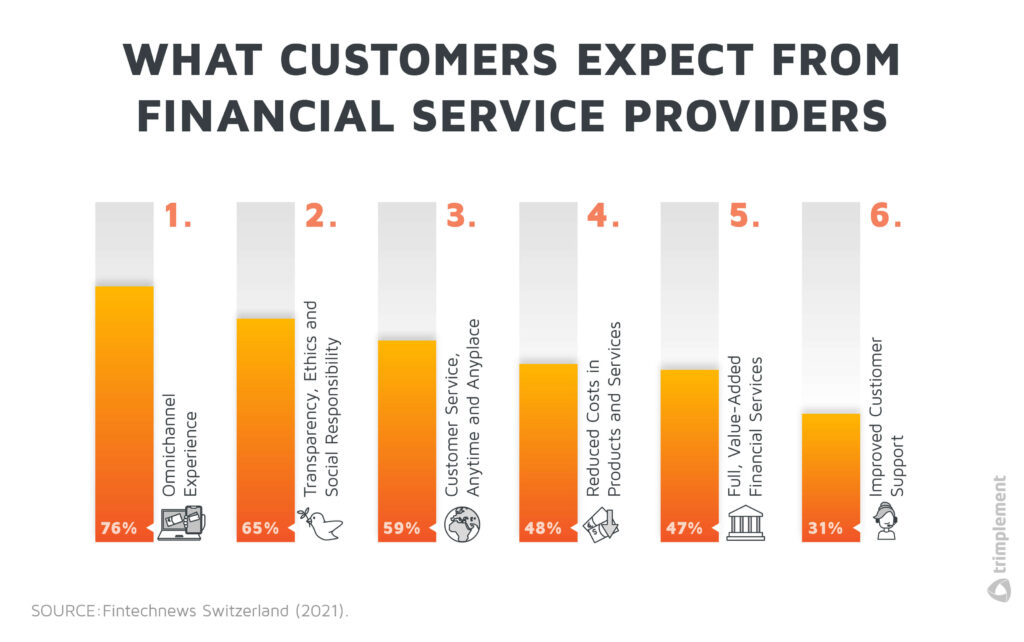We don’t only buy from them. We also pay with them.
In contemporary e-commerce and digital service platforms, we observe a growing number of players who enter the realm of fintech. Those originally non-financial companies understand that offering embedded financial services has become a key success factor. And for some: A profitable side business (if they can sell their self-built payment or wallet systems to other companies).
Those companies realize their fintech ambitions in various forms: Some just rely on external partners and simply embed financial services, such as insurance or loans. Others have higher aspirations and aim at core payment processes. They want to run their own payment solutions. Perspectively, external enterprises or customers not associated with their primary business should use them, too.
If we had to guess: The former paragraphs had specific brands pop up before your mind’s eye. Apple, Amazon and Google. WeChat, perhaps. And of course, the term “Pay” attached to all of them.
But besides the big names, non-financial companies from various industries have broken ground in fintech.
And as we have a certain affinity to the German fintech scene, we want to take a look at 5 of new fintech players from Germany and where their ambitions lie. Here goes, from B to Z:
Car manufacturers have long equipped their vehicles with web connections and smart devices. But now they prepare for the next step: Connected vehicles as hubs for commerce and payments.
BMW
BMW is very much en route here. As is the case with many automotive companies, BMW Group has run their own financial services company since the 70s (mostly to handle purchasing of car components and installment payments of customers).
But in recent years, they shifted up a gear and started to massively invest in new digital systems, including new payment technology. This shows in the formation of promising new partnerships – preferably with aspiring tech startups.
For example, BMW has deepened their relationship with the insurtech Wrisk, formerly a challenger in their “CollaborationLab” incubator. Together, they develop digital insurance for BMW and MINI cars. On another note, they rolled out a Europe-wide wholesale finance system with the lendtech Sword Apak.
In the future, BMW plans to lean into connected car functionalities even more. At some point, BMW vehicles will allow users to buy new software features or book continuous services such as parking flat rates or heated seats on the go. In-car payment services with strong but straightforward authentication will be a requirement here.
Check24
For a long time, Check24 had its core business in pointing customers to other shops and service platforms. After all, they are Germany’s largest comparison portal.
However, since their rise in prominence, they follow a purposeful strategy of keeping customers on their platform as long as possible. As a result, Check24 embedded on-site ordering, buyer protection and financing options.
Two years ago, this strategy culminated in acquiring a full banking license. Now, Check24’s own financial institute, C24 Bank, offers several types of giro accounts, plus debit cards and credit cards issued by Mastercard. The Check24 banking technology was built in-house with support from the fintech provider Mambu.
It’s obvious that C24 Bank is not only a side project for Check24: Their banking services are closely linked to their e-commerce and online comparison business. Thus C24 banking accounts come with offerings of customer protection and cashback programs.
Yet, Check24 follows the Amazon banking strategy, outsourcing the more regulatorily complex banking products to partner banks. In the Check24 app, customers can not only access the C24 giro accounts, they can also integrate giro accounts, saving accounts, building loan contracts etc. offered by other banks. Those are displayed in the app as well, so the C24 app acts as a kind of “digital banking hub”.
Not every banking option turned out profitable for Check24 though: The company has already abandoned its special bank accounts for financially weak customers.
Otto Group
When we think of home-delivery e-commerce, we think Amazon, sure. But when it comes to mail-order and online retail, we should not forget the German Otto Group. They are already one of the world’s largest e-commerce companies, owning subsidiaries such as About You, bonprix, Bombay Company and 3 Suisses. And, fitting to our topic, they have a 25% share in the Hanseatic Bank.
For a few years, Otto is busy pushing its platform presence on the web. In September 2020, they followed up by building a service for platform payments as well.
The project is run by a subsidiary of Otto Group with the tentative name Payment Entwicklungsgesellschaft (engl. Payment Development Company). In this context, Otto has also applied for a Payment institution license at BaFin.
As of now, first transactions are planned for the summer of 2022. CollectAI, now a part of Aareal Bank AG, will operate the complete customer communication with regards to billing and dunning.
Rewe Group
Rewe is specialized in two things: Groceries and travel. And this specialization worked out, as it is now active in 21 European countries.
And with regards to payment, Rewe Group has gathered some major achievements, too: It is the first German grocery chain to solve point-of-sale and online payment processing in a unified manner – and basically in-house. Yes, it was not the first German supermarket chain to try developing its own payment solution. But e.g. Lidl Pay stumbled over frequent fraud incidents, so they had to make extensive improvements to their system.
Rewe Group counts about one billion payment transactions yearly. And now, the corporation from Cologne wants to underpin this business model with its own payment service provider.
Diversifying the Rewe business is one of the main goals for the company here. They announced the creation of their own B2B and B2C Payment Platform for customers and partners. It’s going to be developed by their 100% subsidiary Paymenttools. The company has sprung up from the Rewe Group Card Service, which had processed Girocard payments before.
Paymenttools is the third entry in a number of other Rewe subsidiaries providing platforms: Commercetools, a platform for digital commerce as the name suggests, and Fulfillmenttools, a platform connecting the online and brick-and-mortar vendors of Rewe.
Paymenttools bridges the gap in its omnichannel customer journey. It’s planned to become a one-stop solution for the entire payment process at point-of-sale and for digital purchases. The strategic goal is to offer the solution to other merchants and platforms as well.
Currently, two core services are in development: Point-of-Sale Card Processing and Credit Card Acquiring. Additional services will follow sure over time – with a BaFin licence and in-house banking services being a possible endpoint.
Zalando Pay
Zalando is now active in 23 European countries – and counting. Their expansive strategy is flanked by fintech ambitions that resulted in the foundation of their own payment subsidiary in 2016.
Since then, Zalando Payments has its work cut out: Its parent company has to offer a large variety of cross-border payment options fitting the local preferences – of customers as well as merchants.
What’s more striking though is Zalando Payments’ activity in the field of Buy Now, Pay Later. Or rather: Try First, Pay Later. Zalando separates checkout from payment. Customers can order items but can choose to pay later for them after they get delivered. This emulates the classic brick-and-mortar shopping situation: Choose outfits, try them on, keep some, pay.
To prevent fraud, Zalando Payments operates a risk assessment system supported by machine learning. And it seems to work out: Zalando reported bigger basket sizes and higher retention with customers who used Try First, Pay Later.
Aside from that Zalando has proven fintech-sensitive in other regards. Since 2013, the corporation has stepped up its investments in the fintech market, recently having supported the Berlin-based collection company Pair Finance.
The New Fintech Players – Do They Even Matter?
More non-financial companies strive for their own payment, banking or insurtech solutions. But does this have an impact on the financial industry – and should traditional financial companies and institutions worry?
First off, the main motivation for e-tailers, technology firms, etc. to become fintech players, is that it gives them competitive advantages. For once, they can incorporate their payments seamlessly into their customers’ journeys. But also, fintech ambitions in non-financial companies bloom from the very wish to become more independent of standard solutions. At the same time, digital companies want to finetune their payment to fit their unique value proposition. Those requirements may concern:
- Technology: Their current payment or financial service infrastructure does not work as intended: e.g. is obsolete and hard to maintain, is inflexible, doesn’t scale, costs too much or similar.
- Customers: Their customers want to have specific methods of payment and financial services available, while a more streamlined payment experience improves customer conversion and retention.
- Suppliers: Merchants, supply companies and partners demand reliable payments processing, smoother onboarding, better reporting etc.
- Regulation: The current payment system is not feasible to meet new regulations or handle the different regulatory challenges of an international market.
- Scalability: The business needs new financial technology to expand and handle growth in popularity
- Flexibility: The company is rethinking its business model or reconstructing its platform and wants to reduce dependence on third parties
- Costs: Conditions with external payment service providers are unfavorable and fees are too high.
- …
Partnerships Remain Important
Of course, most companies, even those developing their own fintech solutions, don’t sever all ties with external parties. As the examples above have shown, many companies form partnerships with fintech startups or integrate services from traditional banking houses. Yet, if the trend continues, it might shake up the relationships banks and finserv providers have with their customers: The role of being mere suppliers for external platforms might become a bigger part of bank business. We can already see a similar dynamic with the role of merchants in e-commerce platforms like Amazon: Most of what is sold there is supplied by external merchants. In the future, banking products could face such a development: Banks supply, but others distribute.
What’s more, non-financial brands often have a headstart in customer relationships when compared to traditional financial service providers. Their customers are already familiar with their brand from other contexts. And the new fintech players can offer financial products that fit those contexts – like loan or insurance offers when customers put expensive products in their baskets. That benefits customers, as they get products which target their exact needs – just in time.

This is especially possible as the new fintech players have better access to various types of customer data. If they start to manage payments in-house, they also will gather the payment data in-house. The deeper relationship with their customers yields in-depth knowledge of consumer habits and preferences (provided that payment analytics are set up properly).
The New Fintech Players’ Home Advantage
This equips the new fintech players to develop disruptive, low-friction financial services. In fact, non-financial companies can turn to innovation drivers in the financial industry, as the examples of BigTechs like Google and Apple show.
Yet, for any company, from locally-rooted to multinational, building up a financial service portfolio can transform into an important competitive factor. It’s worth the while if they can afford it. Today’s online customers largely expect to have everything a few clicks (the less the better) away.
You want them to buy from you? Make sure they can pay with you.




